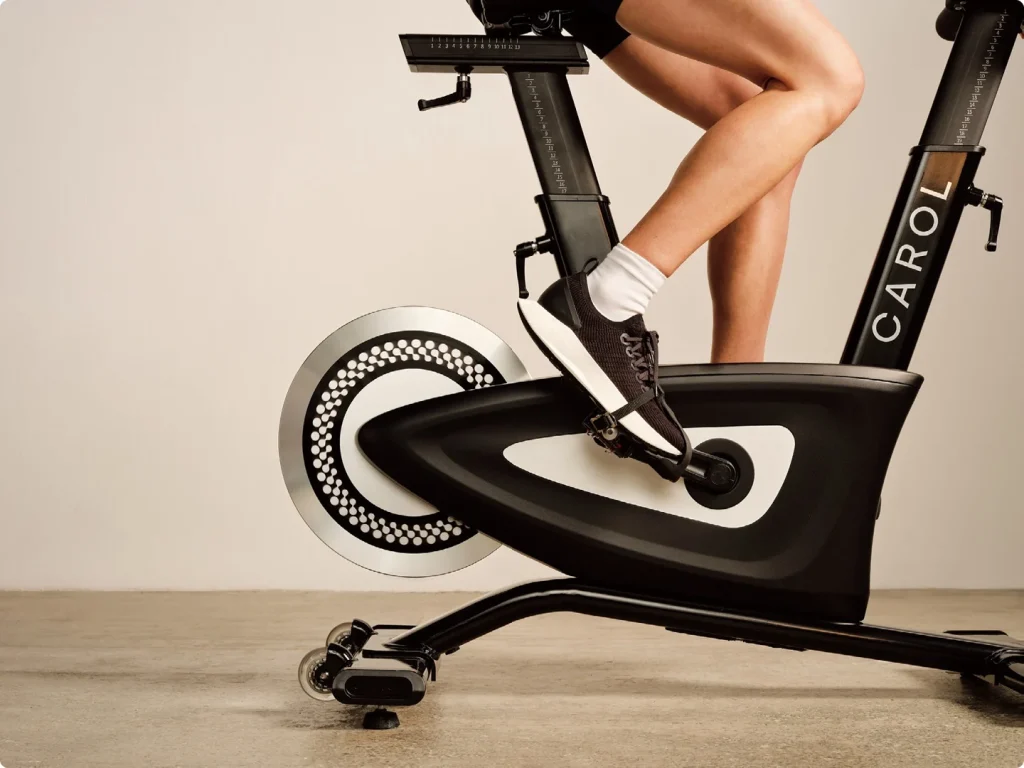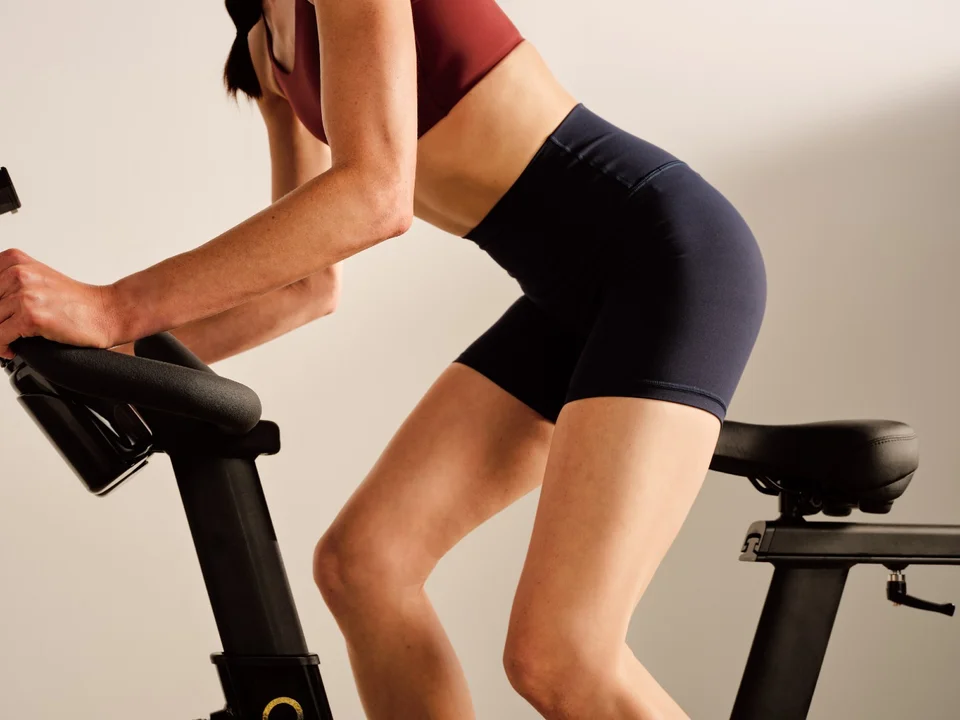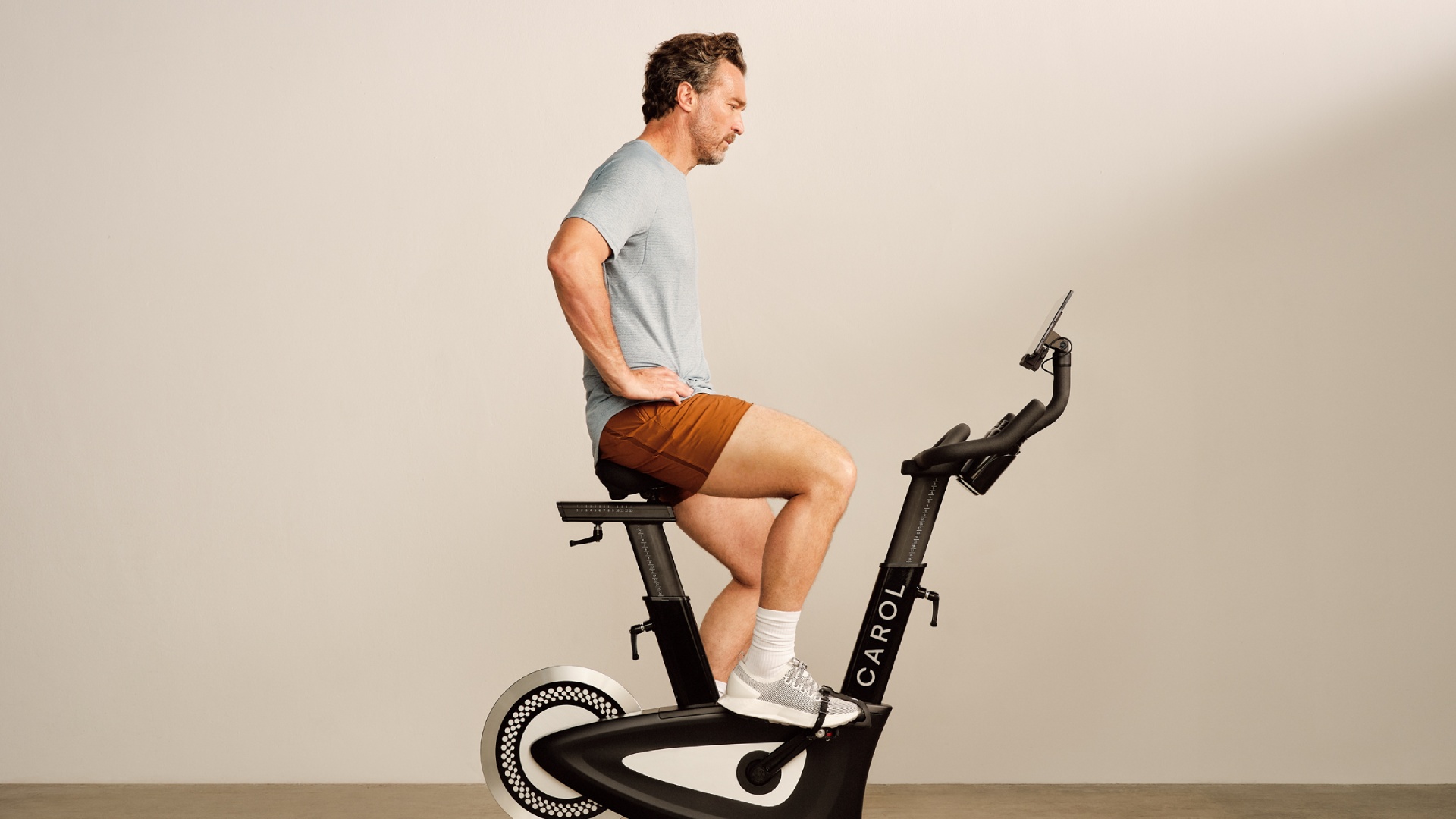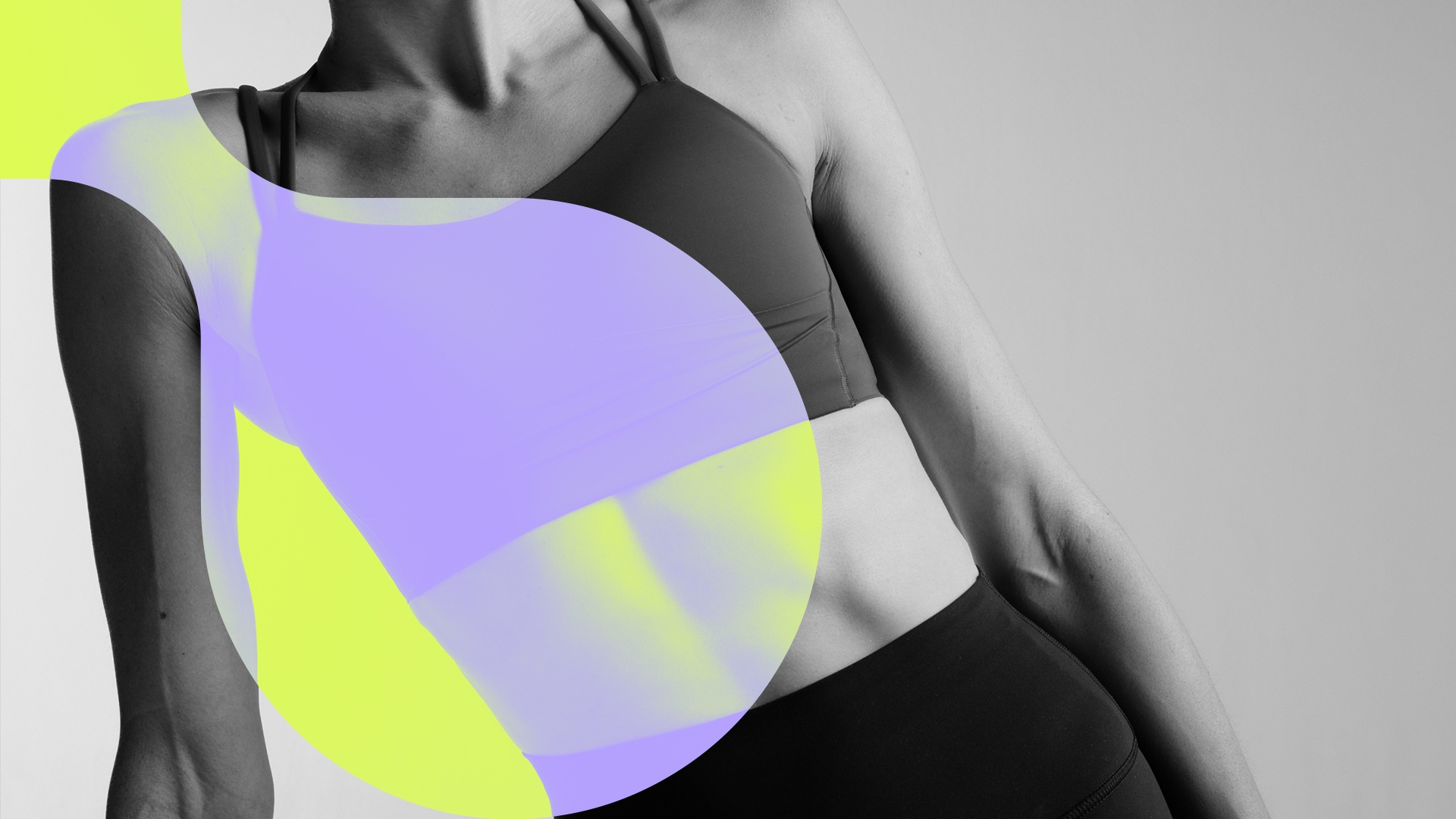Discover the power of high-intensity interval training (HIIT) for impressive results in less time. With HIIT, you can achieve weight loss, improved cardio fitness, and overall health benefits in a fraction of the time.
It is estimated that 1 in 5 people worldwide don’t get enough daily physical activity. While traditional workouts may require 45 minutes or more, HIIT can deliver visible results in just 20 minutes. And with the revolutionary Reduced Exertion HIIT (REHIT) protocol, you can experience the same benefits in as little as 5 minutes. Embrace the efficiency of REHIT and make the most of your limited time.
What is high-intensity interval training?
HIIT is a method of exercising that involves short bursts of high-intensity exercise alternated with periods of lower-intensity activity or rest. In the high-intensity phases, your heart reaches 80-90% of its maximum rate, typically lasting from a few seconds to 4 minutes.
High-intensity exercises activate your fast-twitch muscle fibers responsible for producing a large amount of force for shorter durations. This type of muscle undergoes natural degradation as we age and can only be maintained through HIIT and resistance training. During high-intensity workouts, your body switches to anaerobic metabolism where the main source of energy is not oxygen but glycolysis. The cells break down glycogen (stored sugar) in muscles to produce adenosine triphosphate (ATP).
Working at maximum intensity increases the capacity of your heart and lungs, triggering metabolic changes that low-intensity training cannot activate. Short rest periods enable continuous training without significant reduction in heart rate.
HIIT workouts offer the advantages of resistance and cardiovascular training in just 10-30 minutes, providing structure and measurable progress. With defined work and rest intervals, you’ll witness noticeable improvements in endurance and body composition within the first 4 weeks of training.
Benefits of HIIT
Save time
Multiple studies have consistently shown that HIIT training yields equivalent health benefits to moderate-intensity exercise that takes twice as long. This efficient approach not only saves time but can also keep you feeling motivated and engaged, as you can fit intense workout sessions into your weekly routine without feeling overwhelmed.
More calories burned
A study published in the Journal of Strength and Conditioning Research compared the number of calories burned during HIIT, resistance training, and steady-state aerobic sessions of the same length. The researchers found that HIIT burns 25–30% more calories than any other form of training.
The weight-loss effect of HIIT lasts much longer than the training itself due to increased excess post-exercise oxygen consumption (EPOC) and better lipid oxidation. During EPOC your body actively consumes oxygen required to restore itself to its resting metabolic level, leading to extra calorie burn. By repeating several bouts of intense exercise, you are stacking your oxygen debt across every round to create a cumulative effect. That’s why HIIT is known to produce the greatest and longest EPOC effect than any other type of exercise.
Improved body composition
HIIT is one of the most efficient weight-loss protocols. Most importantly, it allows you to lose weight by burning fat mass while preserving your muscles. As a result, you get a slim, better-shaped, and strong figure.
Besides being an efficient calorie burner, HIIT accelerates lipid oxidation processes in your body which means that your body takes the energy from fat mass, not from muscle tissue. This is the reason why HIIT workouts show better results in fat mass decrease than longer moderate-intensity workouts.
For instance, in a comparative study between a 20-week endurance training program and a 15-week HIIT program, the HIIT program showcased a remarkable 9-fold reduction in subcutaneous adiposity despite requiring only half the energy expenditure.
A 2019 study demonstrated that participants involved in the HIIT sessions lost 28.5% more fat mass than those who did moderate-intensity continuous training.
Improved cardiovascular fitness
Working at full capacity significantly strengthens your heart and lungs. A study published in the European Journal of Applied Physiology demonstrated that 12 weeks of sprint interval training increased peak cardiac output by 6% and VO2max by 21% in previously untrained participants. (VO2max is the key indicator of cardio fitness, showing the maximum rate of oxygen consumption during exercise.) It will take you twice as long to achieve similar results with endurance or cardio training.
Decreased blood sugar
Metabolic changes launched by the HIIT workouts also stabilize blood sugar. A summary of 50 studies found that HIIT appears to be effective at reducing fasting glucose, lowering the risk of type 2 diabetes, and better controlling it for those who already have this condition.
In a 2015 study, an 8-week HIIT workout program demonstrated significant improvements in insulin control and pancreatic function among individuals with type 2 diabetes.
Improved performance
Elevated VO2max and enhanced lactic acid tolerance foster heightened endurance, speed, and power for both resistance and cardio training. Athletes who completed a 6-week HIIT training program exhibited substantial advancements in neuromuscular characteristics crucial for bolstering muscle strength and overall performance. This progress translated into increased limb muscle power, elevated speed, and enhanced agility.

HIIT training has many benefits including saving time, burning more calories and improving cardiovascular fitness.

Researcher shows that HIIT burns 25–30% more calories than any other form of training.
Downsides of HIIT
While HIIT workouts offer numerous benefits, it’s important to note that they can place significant stress on the body and may not be suitable for everyone.
Harvard Medical School suggests that HIIT can be unsafe for people at risk of heart disease and the advantages for elderly individuals are outweighed by those of moderate-intensity exercise.
Additionally, HIIT carries a higher risk of injury and overtraining compared to moderate-intensity training. Adequate recovery time is crucial, and it is recommended to limit HIIT workouts to a maximum of 3 sessions per week.
Which type of HIIT is the most efficient?
HIIT workouts are flexible and adaptable, with variable durations for the active and rest periods. Beginners can begin with shorter intervals, gradually increasing the duration of the active phase as their endurance improves.
Tabata
Traditional Tabata training lasts only 4 minutes, during which you do 8×20-second rounds of exercise with 10-second rest in between. You can also find longer 16- and 20-minute training that consists of several 4-minute parts.
The original research of Dr. Tabata, the creator of the protocol, compared a moderate-intensity 60-minute cycling training with a 4-minute Tabata cycling training. Both groups exercised 5x a week for 6 weeks. The Tabata group demonstrated remarkable results in less training time, with a 28% increase in both VO2max and anaerobic capacity compared to the first group.
EMOM
EMOM, which stands for ‘Every Minute On The Minute,’ involves performing a specific number of reps for an exercise within a minute. If you finish the reps before the minute is up, you can rest for the remaining time. This approach encourages the maximum effort to earn more rest, tests your recovery capacity in a short timeframe, and compels your body to adapt to the challenge.
AMRAP
AMRAP means “As many rounds as possible.” Conversely to EMOM, your goal here is to get in as many rounds of a particular exercise during a specific time period as you can. Workouts can last from 10-40 minutes.
AMRAP makes it easier to track progress as you will be able to do more repetitions over time.
Sprint Interval Training (SIT)
Sprint Interval Training (SIT) incorporates short sprints with rest periods, dividing aerobic activity into bursts of intensity. The work-to-rest ratio ranges from 1:1 to 1:2, and even up to 1:8 for high-intensity running and cycling sprints. For example, a 20-second cycle sprint is followed by 1-3 minutes of recovery. Each workout typically includes 4-7 sprints. SIT can be applied to various cardio activities such as running, cycling, rowing, skiing, and more.
Reduced Exertion HIIT (REHIT)
Reduced Exertion HIIT (REHIT) was developed by scientists looking to pack all benefits of high-intensity interval training into an even shorter, more effective way to exercise. It is based on research that has shown that 2×20-second all-out sprints are enough to deplete up to 30% of the body’s glycogen stores and trigger metabolic changes that increase calorie afterburn and significantly improve aerobic fitness. The results of an 8-week study showed that REHIT elicited more potent, time-efficient improvements in cardiometabolic health and fat loss when compared to traditional training.
REHIT training lasts just 5 minutes. The active phase involves just 2×20-second sprints, pushing your body to its maximum capacity and triggering a fight-or-flight response. This activates metabolic adaptations that enhance calorie burning and elevate your VO2max, unlocking significant fitness benefits in a short amount of time.
CAROL Bike is the only stationary bike that accurately replicates REHIT conditions at home. It gives you the shortest, most effective workouts—proven to deliver superior health and fitness benefits in 90% less time compared to regular cardio. CAROL’s AI-personalized workouts are easy to follow, suitable for any age and fitness level, and create the most potent training stimulus with just 2×20-second sprints. It’s a moment of effort you can always master to build a habit that lasts.
Learn about all the health benefits of this training.

CAROL Bike gives you the shortest, most effective workouts—proven to deliver superior health and fitness benefits in 90% less time compared to regular cardio
HIIT workouts you can do at home
You can combine bodyweight, resistance, and aerobic exercises to achieve a full-body workout or work on a particular area. A HIIT workout usually consists of 4-6 circuits or sprints.
Here are a few examples of simple HIIT workouts you can do at home:
No-weight Tabata workout for beginners:
Warm-up (5 mins)
8 rounds of burpees (20 sec work + 10 sec rest)
8 rounds of push-ups (20 sec work + 10 sec rest)
8 rounds of jump squats (20 sec work + 10 sec rest)
Cooldown (5 mins)
CAROL Bike’s signature REHIT ride:
Warm-up (20 sec-2 min)
Sprint 1 (20 sec)
Recovery (1-3 min)
Sprint 2 (2 sec)
Cooldown (3 min)
30-20-10 bodyweight HIIT workout
Squats with alternating knee pull (30 sec, moderate-intensity)
High knees (20 sec, high-intensity)
Tuck jumps (10 sec, maximum capacity)
Revolving pigeon (1 minute, active recovery)
Repeat the circuit 2 times
EMOM workout
1st min: Ice skaters x 30
2nd min: Crunches x 20
3rd min: Burpees x 3
HIIT workouts are one of the most efficient ways to burn calories and get significant health benefits in the shortest period of time. There are plenty of variations of HIIT workouts so you can choose the one that suits you best depending on your fitness level, preferred type of training, and fitness goals. REHIT packs the benefits of HIIT into the shortest, most efficient workout that lasts only 5 minutes. Training for only 15 minutes a week is scientifically proven to improve your cardio fitness by 12%—in just 8 weeks.

Got a question? Let's book a call.
All our experts have MSCs in Exercise Science, and they’re here to answer your questions. Whether it’s about the science behind CAROL Bike, or general fitness advice, whatever’s on your mind—we’re here for you.


